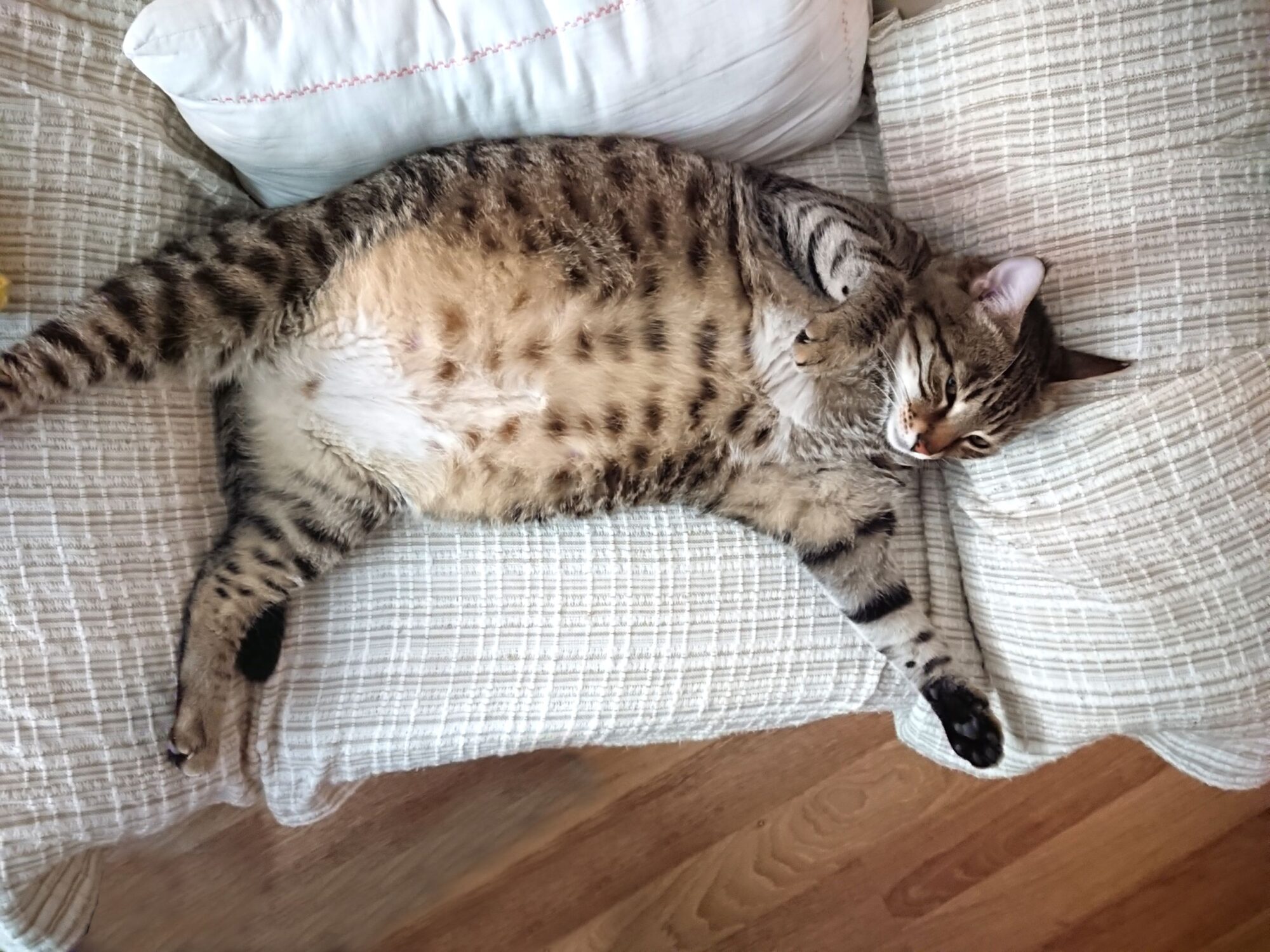From Fluffy to Fatty: The Risks of Overweight Cats

Extra fluffy cats may be all the rage on social media, but overweight cats make the staff at Harpeth Hills Animal Hospital feel a little sad. Feline weight management is key to good cat health, and many kitties need a little help in that department. Read on to learn why cats become overweight, the risks of cat obesity, and how to help your cat stay svelte.
Why Cat Obesity Happens
Over half of cats are considered overweight or obese, which translates to trouble in the cat health department.
There are many reasons that this occurs:
- Pet owners do not often know how to tell if their kitty is becoming overweight
- Cats live a relatively sedentary lifestyle as pets than they would in the wild
- We have a tendency to overfeed our pets
- Small changes in feeding or metabolism can have a big impact on a cat’s size
When we take outdoor hunting animals and give them a warm bed and a bowl of food, we need to make some adjustments to avoid trouble.
Risks of Having Overweight Cats
A little extra fluff may look cute, but cat obesity has some major impacts on overall health and longevity. We know that overweight cats are predisposed to:
- Type 2 diabetes (up to three times increased risk!)
- Kidney disease
- Cancer
- Cardiovascular disease
- Inflammatory diseases
- High blood pressure
- Osteoarthritis
All of these conditions can have notable negative effects on your cat’s quality of life. That extra pooch doesn’t look so adorable when you start to realize how it impacts your purrfect companion.
Feline Weight Management
The good news is that there are definitely ways to help your feline friend thrive in your home. There a few considerations when it comes to keeping your cat at a healthy weight:
- Calorie counts — Knowing how many calories your cat should be eating is a great place to start. Take into account your pet’s ideal body weight (about 10 or 12 pounds for most domestic cats). Your cat’s resting energy requirement (RER) is their weight in kilograms divided by 2.2. For weight loss, you will want to multiply that number by 0.8. This means that for most cats to lose weight, they should be eating around 170 kcal per day. Contact us for help formulating a diet for your cat, as fast weight loss can be dangerous in very overweight kitties.
- Getting active — Exercise is a great way to help kitty burn some calories and feel better. Short bursts of intense activity support the natural feline metabolism. Creative ways to encourage cat exercise include hiding the food in rotating locations, using indoor hunting feeders, getting out the feather toys or balls, and turning on a kitty-friendly video. A few short bursts of exercise daily is a great goal.
- Food choice matters — Choosing your pet’s food wisely can be helpful. Different foods have different calorie contents per cup, and some may have more fiber, which can help your cat feel more full. Canned food can be a great way to accomplish decreasing calorie intake, and most canned food contains a lot of water. Feline nutrition choices can be difficult, and our team is happy to advise.
- Steer clear of pitfalls — Beware of automatic or gravity feeders that can allow your cat to overindulge easily. Needy cats can also pull on our heartstrings. Try to offer petting, play, or water when your cat is calling to you to see if those things satisfy their efforts. Adding just a few kibbles to an empty bowl may also be enough to help your cat feel the love when they are feeling extra hungry.
Helping your cat to maintain a healthy body weight is such an important part of responsible pet ownership. It is also sure to help your kitty live a longer and healthier life. We applaud your efforts to provide the best care for your cat and we are always here to help.

